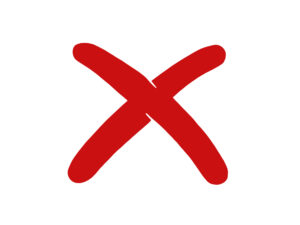Is H&M an ethical and sustainable fashion brand?
H&M, is a multinational fashion brand, based in Sweden and owned by H&M Hennes & Mauritz AB. The Good Shopping Guide has given H&M a low ethical rating. Unfortunately, this brand receives a low Good Shopping Guide Ethical score in our Ethical Fashion Retailers Ratings Table and has not yet met our minimum Ethical Benchmark. This brand has several areas to improve upon before it would likely qualify for our Ethical Accreditation.
In what areas of brand ethics does H&M perform poorly?
The Good Shopping Guide researches brands and companies across many criteria, spanning data and reporting on the Environment, Animals and People.
For our Organic category, H&M scored very poorly, as none of its products is certified by a recognised organic accreditation board, such as The Soil Association, or similar. The use of certifications helps to verify that cotton, one of the “dirtiest crops”, was not cultivated in a way that was hazardous to farmers, local ecosystems, animals, or cotton producers as well as to farmers and cotton growers.
Secondly, for our research criteria that studies brands’ Animal Welfare Policies; H&M scores poorly. Although the brand has a strong Animal Welfare Policy, PETA has previously criticised the retailer for using animal skins. This article describes how calves are mistreated.
H&M scores perhaps most poorly for its Human Rights track record. The COVID-19 pandemic has trapped factory employees working in the H&M supply chain in Bangladesh, Cambodia, and Indonesia into poverty, according to a sobering new study report from the Clean Clothes Campaign. The earnings, working conditions, and labour rights of garment workers in these nations continue to be severely impacted by the coronavirus crisis, according to interviews with 49 textile workers in these countries.
Another report from the Clean Clothes Campaign also uncovered more unsafe working conditions for H&M supply chain workers in Bangladesh. According to this research, the brands that have signed the Bangladesh Accord have reportedly failed to carry out the agreed-upon safety upgrades at their Bangladeshi supplier plants.
These are just a few examples of H&M Hennes & Mauritz AB’s poor treatment of workers and People in its supply chain.
In what areas does H&M perform well?
H&M is a member of the Ethical Trading Initiative. Being a member of this initiative encourages a company to make progress and work for greater traceability and welfare of workers in its supply chain. It has received a good score for our Ethical Trading Initiative criteria.
H&M also subscribe to the Better Cotton Initiative. This project seeks “to help cotton communities survive and thrive while protecting and restoring the environment.”
How can the H&M brand improve its Ethical Rating?
The Good Shopping Guide’s score results from 15 ethical criteria in relation to H&M. To reach our Ethical Benchmark and qualify for our Ethical Accreditation, H&M has several issues to deal with, including its treatment of workers in its supply chain.
If your fashion brand values ethics and sustainability, why not check out The Good Shopping Guide’s Ethical Accreditation? Increase customer and investor confidence and stand out from the greenwash.
Ethical performance in category
GSG score
GSG category benchmark
Ethical Rating
Environment
-
Environmental Report
Good
-
Organic
Poor
-
Better Cotton Initiative
Poor
-
Fossil Fuels
Good
Animal
-
Animal Welfare
Good
People
-
Armaments
Good
-
Code of Conduct
Good
-
Political Donations
Good
-
Ethical Trading Schemes
Good
-
Human Rights
Poor
-
Human Rights+
Poor
Other
-
Ethical Accreditation
Poor
-
Other Criticisms
Poor
-
Other Criticisms+
Poor
= GSG Top Rating = GSG Middle Rating = GSG Bottom Rating
